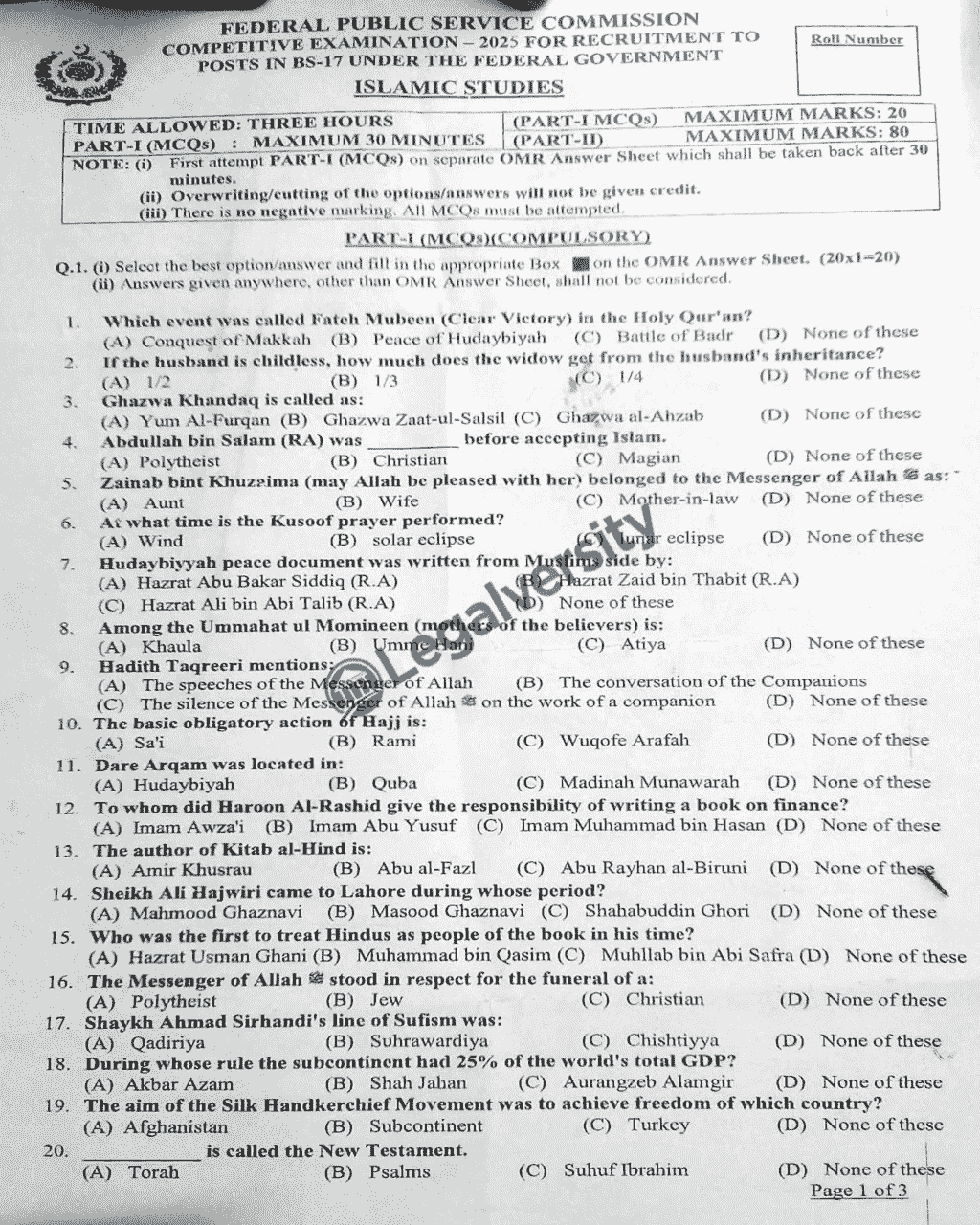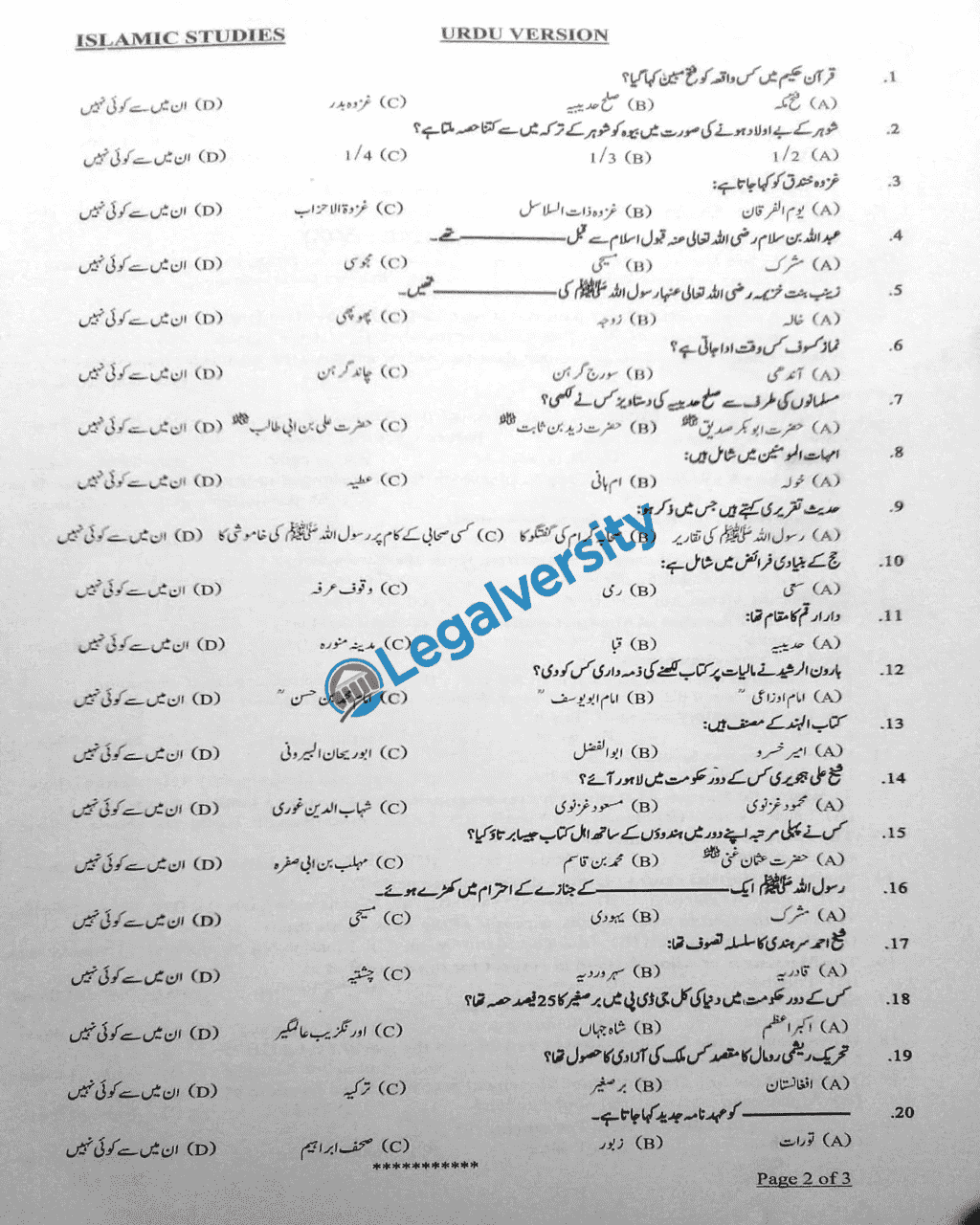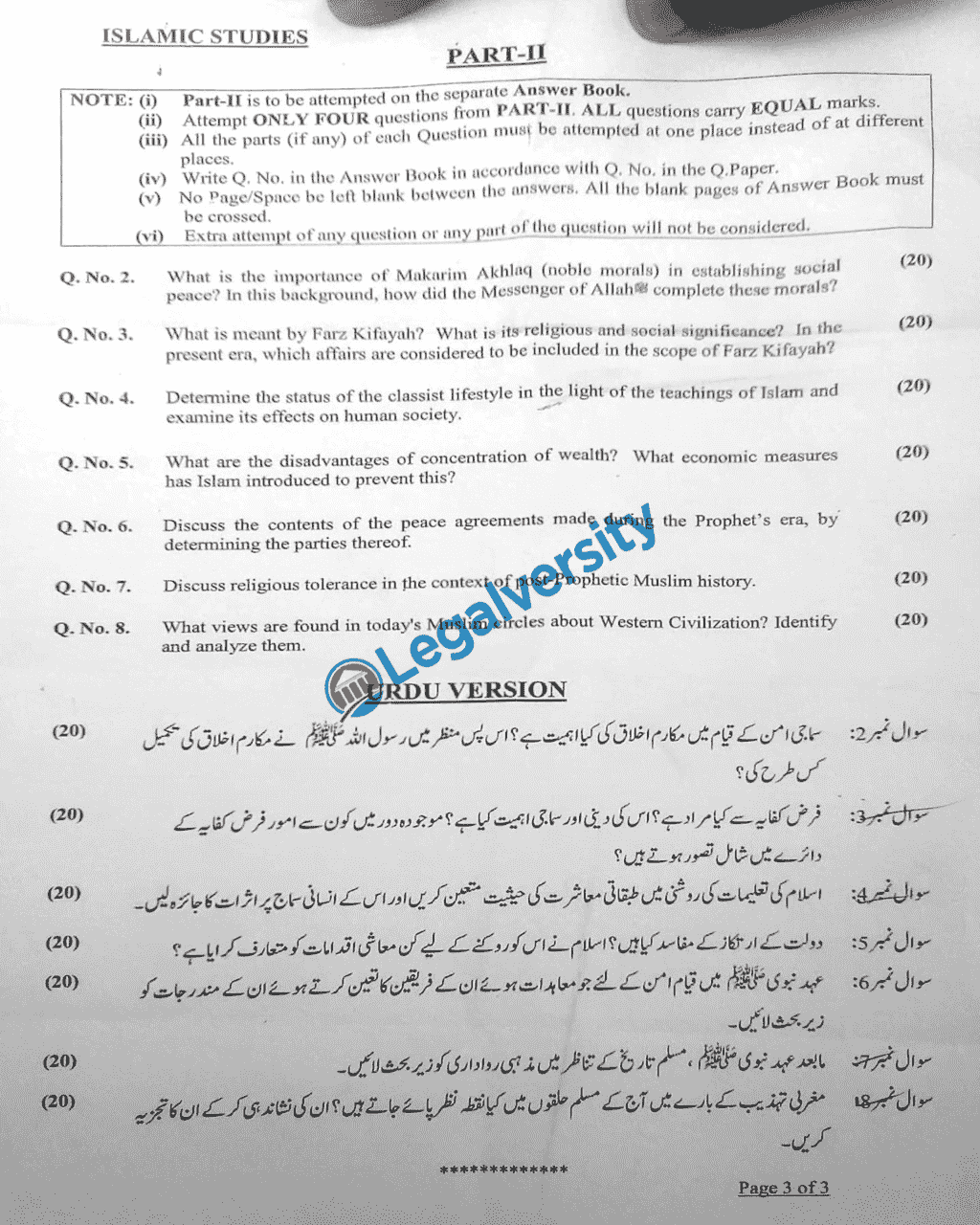Islamic Studies is a compulsory subject in the CSS competitive examination 2025. Here, you will find the CSS Islamic Studies past paper 2025. I will also provide a critical analysis of the paper, in which you will analyze what topics were given and how to tackle this paper.
CSS Islamic Studies Past Paper 2025
Q1. What is the importance of Makarim Akhlaq (noble morals) in establishing social peace? In this background, how did the Messenger of Allah (PBUH) complete these morals?
Q2. What is meant by Farz Kifayah? what is its religious and social significance? In the present era, which affairs are considered to be included in the scope of Farz Kifayah?
Q3. Determine the status of the classist lifestyle in light of the teachings of Islam and examine its effects on human society.
Q4. What are the disadvantages of the concentration of wealth? What economic measures has Islam introduced to prevent this?
Q5. Discuss the contents of the peace agreements made during the Prophet’s era, by determining the parties thereof.
Q6. Discuss religious tolerance in the context of post-prophetic Muslim history.
Q7. What views are found in today’s Muslim circles about Western Civilization? Identify and analyze them.
Critical analysis of the paper
This paper explores major Islamic principles concerning morality, society, economy, and relations among different faiths, where candidates must give soundly argued and scholarly answers based on Islamic teachings.
The first question highlights Makarim Akhlaq (noble morals) and their contribution to social peace. The candidate should describe how the Prophet Muhammad (PBUH) exemplified these morals in his behavior, as referred to in the Quran and Hadith.
The second question touches on Farz Kifayah, which is a communal duty in Islam, and discusses its religious and social implications. In the contemporary setting, applicants are required to provide contemporary applications, e.g., public good, conservation of the environment, and national security.
The third question calls on candidates to examine classism based on Islamic teachings, where there is an emphasis on equity and justice. It demands the assessment of the impact of social stratification and disparities in wealth.
The fourth question questions the concentration of wealth, a principal economic problem. The answer must present Islamic solutions such as zakat, a ban on riba (usury), and inheritance policies for wealth redistribution.
The fifth question calls for historical examination of peace treaties during the Prophet’s time, including the Treaty of Hudaibiya, the Constitution of Medina, etc., and the parties involved and their importance.
The sixth question explores post-prophetic Muslim history’s religious tolerance, calling for analysis of how Islamic civilizations handled religious minorities, based on examples in the Umayyad, Abbasid, and Ottoman times.
The last question is a modern analysis of Muslims’ views towards Western civilization, calling for a dispassionate review of diverse viewpoints, ranging from criticism to appreciation, and the influence they exert on contemporary Muslim societies.
In general, this paper requires a profound knowledge of Islamic teachings, history, and current affairs, with well-balanced, well-supported arguments.
View the CSS Islamic Studies Paper 2025



Relevant Posts:
